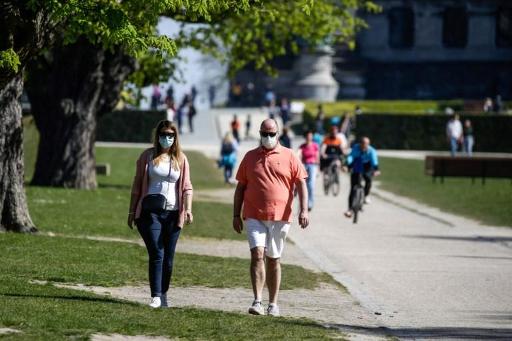Researchers from the Université libre de Bruxelles (ULB) and UNamur have been working on the issue of "responsible deconfinement" out of the lockdown to contain the further spread of the new coronavirus (Covid-19).
Their three-part strategy was published in the journal Nature Medicine on 10 April, according to a press release issued on Tuesday.
Researchers Mathias Dewatripont (who is part of Belgium’s GEES, the Group of Experts for an Exit Strategy), Marius Gilbert (who previously said that the slowdown of the coronavirus in Belgium was 'confirmed' and also part of GEES), Michel Goldman, Eric Muraille and Jean-Philippe Platteau propose a strategy of progressive deconfinement in three complementary lines of action: maintaining social distance, setting up mass screening and implementing procedures on a large scale.
Maintaining the social distance is necessary, as the measures make it possible to reduce the transmission of the virus below a threshold that can be managed by hospitals.
Related News
- Coronavirus: Belgium surpasses 4,000 deaths
- Coronavirus: Experts warn against letting confinement rules slip
- Coronavirus: Belgium will review lockdown on Wednesday
Screening tests should be able to detect both virus carriers (with or without symptoms) and immunised individuals (non-contagious and potentially protected against the disease). The former will be placed in quarantine and their contacts traced, while the latter will make it possible to measure herd immunity.
Implementing mass testing in the population will require prioritisation, warn researchers, for whom the first targets of such testing should be workers in essential services, such as health, safety and food.
"This balancing act is a matter of political choice: the priority groups to be screened must be defined transparently, according to the demographic and socio-economic context of each country, and with the involvement of different decision-makers to increase buy-in," the statement said.
The scientific article, signed by two members of the Belgium's GEES, was written before the task force was set up by Prime Minister Sophie Wilmès. This group submitted its first report to the government on Tuesday, which will serve as a basis for Wednesday's meeting of Belgium's National Security Council.
The Brussels Times

